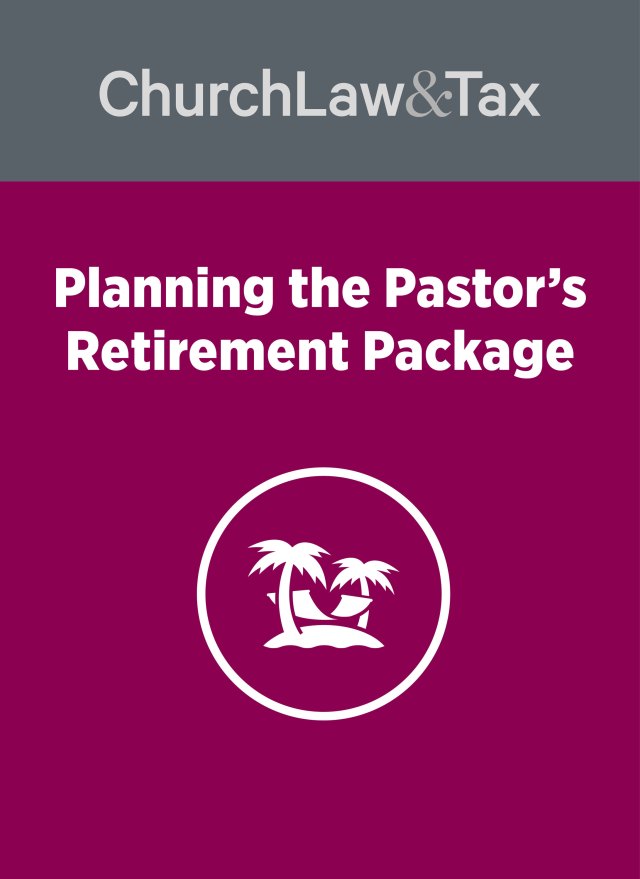Ministers who satisfy several conditions can exempt themselves from self-employment (Social Security) taxes by filing a timely exemption application, called Form 4361, with the IRS. The tax regulations specify that Form 4361 is not effective until it is marked “approved” by the IRS and returned to the minister.
A third of all ministers have exempted themselves from self-employment taxes by filing a timely Form 4361 with the IRS. Since in most cases this form must be filed by the due date of the federal tax return for the second year in which the minister received ministerial compensation of $400 or more, it ordinarily is filed early in a minister’s professional career. As years and even decades pass by, the likelihood increases that the form will be lost or destroyed.
So what happens if a minister’s tax return is audited by the IRS, and the minister is asked to produce an approved Form 4361 that has been lost or destroyed? Is the minister exempt? If not, will he or she have to pay accrued self-employment taxes with interest and penalties? If so, the tab could easily run into the tens of thousands of dollars.
The Tax Court addressed this important question in a recent case.
Facts of the case
A minister (the “petitioner”) had been an ordained member of the clergy since 1992. She began to receive income from the performance of ministerial services in 1993. The first two years after ordination in which she derived net self-employment earnings of $400 or more from ministerial services were 1993 and 1994.
The petitioner timely filed her 1994 federal tax return (Form 1040) on October 16, 1995. She claimed that she submitted a Form 4361 with her 1994 tax return and that the form was approved by the IRS and returned to her. The petitioner’s copies of her 1993 through 1998 tax returns were destroyed in a basement flood. As a result, she did not have a copy of the Form 4361 that she claimed she filed with her 1994 tax return. Further, the tax returns she filed for the years 1993 through 2002 have been destroyed by the IRS pursuant to normal procedures.
In reliance on the fact that her Form 4361 exemption application had been approved by the IRS in 1994, the petitioner did not pay self-employment taxes on any ministerial income since 1994. The petitioner’s tax returns for 2000 and 2002 were audited by the IRS, but in both cases the IRS accepted the petitioner’s status as exempt from self-employment taxes.
However, in 2012 the IRS informed the petitioner that she owed self-employment taxes for 2007 and 2008 (the years under investigation), based, in part, on the fact that the IRS “ministerial waivers unit’s” file for the petitioner did not contain a Form 4361 that was filed in 1994. The petitioner appealed to the United States Tax Court.
The Tax Court’s ruling
The United States Tax Court ruled that the petitioner was exempt from self-employment taxes even though she could not produce her approved copy of Form 4361.
The court began its opinion by noting “petitioner bears the burden of proving that her Form 4361 was properly filed and approved and that the IRS determination is erroneous.” The court noted that “the mere filing of a Form 4361 does not constitute an exemption. The exemption is granted only if the application is approved by an appropriate internal revenue officer.” Treas. Reg. 1.1402(e)-2A(c). The court continued:
The first two years after ordination in which petitioner derived net self-employment earnings of $400 or more from ministerial services were 1993 and 1994. As a result, in order for petitioner to be exempt from self-employment tax for the years at issue, she must have filed a Form 4361 no later than the due date of her 1994 federal income tax return. Petitioner stated that she attached a completed Form 4361 to her 1994 tax return and that such form was approved by the IRS and returned to her in 1995. The IRS argues that petitioner did not prove she had filed a Form 4361 with her 1994 tax return and that the IRS has no record of an approved Form 4361 from that period. We must determine whether petitioner attached her Form 4361 with her timely filed 1994 tax return and whether the IRS approved such form.
The parties stipulated that petitioner’s copy of her 1994 federal income tax return was destroyed in a flood along with copies of her 1993 and 1995 through 1998 tax returns. Petitioner stated that the Form 4361 approved by the IRS in 1995 was attached to the destroyed return. Petitioner argues that the examinations of her federal income tax return for the taxable years 2000 and 2002 in which the IRS determined she owed no self-employment tax is circumstantial evidence that at the time of the two examinations the IRS had evidence of petitioner’s approved Form 4361 … .
For the taxable years 2000 and 2002 the IRS examined petitioner’s tax returns and agreed with petitioner that no self-employment tax was owed. The only issue relative to the exemption was whether petitioner had timely filed a Form 4361 that had been approved by the IRS. This creates an inference that on at least two occasions the IRS determined that petitioner had filed a Form 4361 with her 1994 tax return and that such form had been approved. The IRS determinations during the two examinations are consistent with petitioner’s assertion that the Form 4361 she filed with her 1994 tax return had been approved. Petitioner has consistently reported that she was exempt because she had filed Form 4361. Petitioner’s reporting of no self-employment tax for these taxable years is consistent with her position that the Form 4361 filed with her 1994 tax return was approved by the IRS. Over the course of multiple examinations petitioner has consistently stated that she filed a Form 4361 with her 1994 tax return and that such form had been approved. On two previous occasions the IRS apparently agreed. Based upon the evidence we find that, more likely than not, petitioner filed a Form 4361 with her 1994 federal income tax return and that such form was approved by the IRS. Accordingly, we hold that petitioner is not liable for self-employment tax for the years at issue. Corso v. Commissioner, T.C. Sum. Op. 2014-3 (2014).
This case may be of assistance to those ministers who filed a timely Form 4361 exemption application that later was approved and returned by the IRS, but that was subsequently lost or destroyed. The tax regulations specify that “the filing of an application for exemption on Form 4361 by a minister … does not constitute an exemption from the tax on self-employment income … . The exemption is granted only if the application is approved by an appropriate internal revenue officer.” In practice, this means that an exemption is effective only when an applicant receives back one of the three 4361 forms (it is filed in triplicate) from the IRS marked “approved.”
What this means for ministers
If you are sure that you filed a timely Form 4361 that was approved by the IRS and returned to you, but is now lost or destroyed, note the following two points in the event you are audited and the IRS asks for proof of exemption:
Contact the tax preparer you used to prepare and file your tax returns at the time the form would have been submitted. The preparer may have records that will indicate if a Form 4361 was filed.
This case, and others, indicate that ministers who file a timely Form 4361 that is approved and returned by the IRS may be able to prove their exempt status even if they cannot produce the approved form, if there is other evidence to demonstrate that the IRS approved the exemption.
It is a good practice for ministers who file Form 4361 to make copies of their approved form and store them in different locations (paper or digital).





